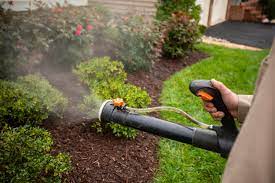All About Mosquito Control Lexington KY
 Mosquito Control is a public health practice that aims to reduce the number of mosquitoes in a region to prevent disease and to improve the quality of life. It is essential around the world because mosquitoes are responsible for the spread of various diseases including the Zika virus. Mosquito control is an effective way to control the mosquito population.Mosquito Authority-Mosquito Control Lexington KY offers excellent info on this.
Mosquito Control is a public health practice that aims to reduce the number of mosquitoes in a region to prevent disease and to improve the quality of life. It is essential around the world because mosquitoes are responsible for the spread of various diseases including the Zika virus. Mosquito control is an effective way to control the mosquito population.Mosquito Authority-Mosquito Control Lexington KY offers excellent info on this.
Mosquitoes are vectors of several diseases including the West Nile virus, Eastern equine encephalitis, and LaCrosse encephalitis. Eliminating standing water sources and using larviciding pesticides are the most effective ways to control mosquito populations. These chemicals can be used outdoors as well as indoors.
Mosquito Control programs usually take a long-term approach that involves the integration of different methods. This way, mosquitoes are effectively controlled while minimizing the risk to the environment. Proactive methods include education and source reduction, which include eliminating standing water sources and covering containers. Mosquito Control also focuses on managing adult mosquitoes and immature mosquitoes by controlling breeding sites and eliminating mosquito larvae.
Aerial spraying is another method for reducing mosquito populations. In this method, pesticides are sprayed into the air via a helicopter or airplane. The chemicals are applied in the air in a fine mist that kills adult mosquitoes on contact. In addition, this method has no residual effects.
There are many types of insecticides for controlling mosquitoes. Many of these chemicals work by killing mosquito larvae in their early stages. Insect growth regulators and EPA-registered larvicides are common methods of mosquito control. They are also non-toxic to humans and pets. The chemicals are applied by licensed mosquito control professionals who use backpack sprayers, spray trucks, and airplanes.
One effective way to control mosquitoes is to use insecticides that contain Bacillus thuringiensis, a bacterium that is toxic to mosquito larvae. This bacteria is used in public health mosquito control programs, but it is not toxic to birds or pets. If you decide to use an insecticide, read the label carefully and use it only where it is necessary.
Mosquitoes emerge from their daytime resting sites during the evening hours. They use their senses to detect a blood meal, and residual mosquito treatments are effective for reducing adult mosquitoes. Residual mosquito treatments can be applied using a backpack sprayer or hand pump sprayer. Be sure to use the right droplet size and concentration. Remember to use a buffer around the treated area to prevent the spray from harming plants.